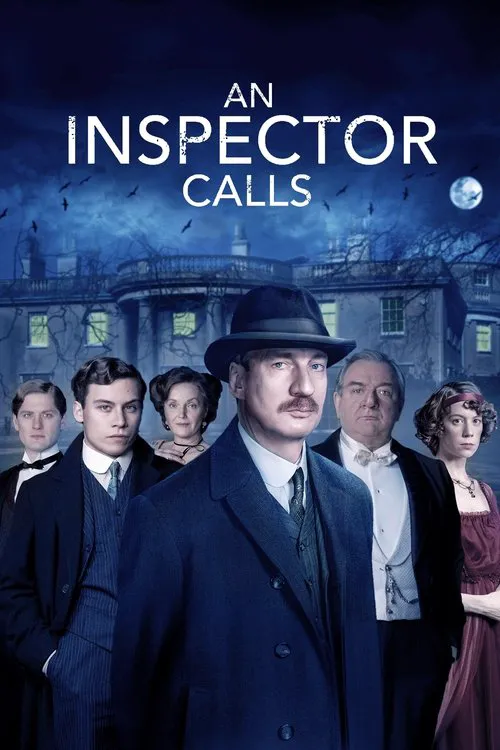An Inspector Calls

Plot
In the midst of the opulent evening in the household of the Birlings, Joseph and Sybil, their daughter Sheila and her fiancé Gerald Croft are visiting from Manchester. The family's dinner is interrupted by the sudden arrival of a tall, imposing figure, Inspector Goole, who appears to be in a state of great urgency and solemnity. In a manner that commands everyone's attention and respect, the Inspector shares the tragic news of the demise of a young woman named Eva Smith. However, he does not reveal any further information about her death beyond the fact that it was a suicide. The Inspector then proceeds to question each member of the family, one by one, about their familiarity with Eva Smith. The Inspector begins by interrogating Arthur Birling, the patriarch of the family, about any connections he may have had with the deceased woman. Arthur Birling is reluctant to share any information about the matter, and the Inspector senses that there may be more to his reluctance than just a straightforward lack of knowledge. When the Inspector confronts him with the possibility of a connection between the family and Eva Smith, Arthur Birling becomes increasingly evasive and even hostile. The next person to be questioned by the Inspector is his wife, Sybil. Sybil reveals that she had a brief conversation with Eva Smith, which ended somewhat abruptly and was perhaps even a bit unpleasant. The Inspector presses her for more information about the nature of their conversation and the reason for its abrupt conclusion, but Sybil refuses to be drawn any further into the conversation. Next, the Inspector turns to their daughter, Sheila, and asks if she had any contact with Eva Smith. Sheila is hesitant to share any information, but eventually reveals that she had a brief friendship with Eva and that they had discussed the possibility of Eva becoming pregnant outside of marriage. The Inspector listens intently as Sheila describes the circumstances of their parting and seems to be taking note of the details. When Gerald Croft is questioned by the Inspector, he reveals that he had a more extended relationship with Eva Smith and that he had been seeing her regularly for several months. Gerald tries to portray himself as having genuinely cared for Eva, but the Inspector senses that there may be a degree of dishonesty behind his words. Finally, the Inspector turns his attention to Ernest Birlign, the youngest member of the family. Ernest reveals that he and Eva had been friends and that they had spent time together at a local dance hall. The Inspector listens to Ernest's account of their friendship with a mixture of interest and skepticism, and eventually asks him to elaborate on certain details. The Inspector's questioning of each member of the family serves as a catalyst for them to reflect on their own relationships and the choices they made that may have contributed to Eva's tragic demise. As the evening wears on, each member of the family is forced to confront their own complicity in Eva's death and the consequences of their actions. Ultimately, the Inspector presents each member of the family with a stark and uncomfortable truth: that they all, in their own ways, contributed to Eva's death. Whether through their actions, their choices or their inaction, each member of the family has some level of responsibility for the tragic events that unfolded. The Inspector's message is clear: that everyone is connected and that we are all responsible for the lives of those around us. As the evening draws to a close, the Birlings are left to ponder the consequences of their actions and to consider the extent to which they are responsible for the death of Eva Smith. The play An Inspector Calls is a powerful commentary on the social class divisions of the early 20th century and the consequences of the choices we make. It presents a stark and uncomfortable truth: that we all have a responsibility to those around us and that our actions can have far-reaching and devastating consequences.
Reviews
Recommendations




